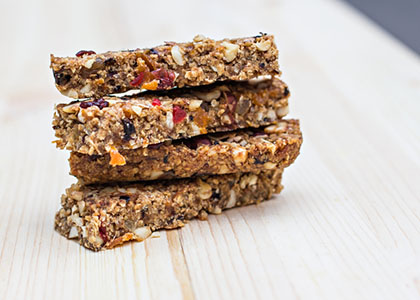
Eating These Foods Can Actually Make You Hungrier
By Claire Georgiou, Reboot Naturopath, B.HSc ND
How many times have you eaten something, enjoyed it for a few fleeting moments, then moved into regret because you feel bloated, fatigued and over-full? You promise yourself, you’re NEVER ever going to eat again, or maybe you’re just going to drink green juice for the rest of your life. We all know what happens next.
Many foods increase our hunger rather than help it! We know that overeating increases the appetite for more calorie-rich foods, particularly foods that stimulate our hungry hormones such as insulin, and overeating can also reduce our cell sensitivity to leptin (our ‘stop eating’ hormone). Certain foods support healthy blood sugar, insulin levels and appetite control, while others create a cellular and hormonal s%^t storm! Lucky us!
Here are foods that can increase our appetite:
Sugar
This is a biggy for stimulating the appetite and causing fatigue and hunger. This is put into almost all packaged foods, even in food products where you would least expect it. Sauces, burger buns, pretzels, yogurts, many dairy products, milks including nut milks and anything to get you to eat more. Processed sugar is a very addictive substance and food manufacturers knew this a long time ago.
White Refined Flours/Grains
Baked goods and white flour-based foods such as fluffy pastries, breads, pasta, scones, pies, tarts, etc. all help to stimulate our hunger and cause havoc with our blood sugar levels making us tired, depressed, lethargic, hungry and causing us to gain weight. The greater the amount, the worse the result.
Pre-packaged Snack Foods
Many processed snacks like sugar-loaded granola bars, salty crisps, crackers, bread sticks and fruit bars are all loaded with additives that will make you hungrier and lead to weight gain. Even when a food is listed as low calorie, this is potentially irrelevant because it can create an appetite surge that then causes you to want to eat more food the next day. So the cycle continues.
Quick and Easy to Prepare Meals
I have a theory that if it’s a quick microwavable meal, then it will probably hit your blood sugars even quicker. Pre-packaged noodles, pop tarts, one-minute oats and other quick meals and snacks won’t see you past an hour or 2 before you’re looking for more.
Fast Food
Most food at a fast food place is full of hidden processed vegetable oils, refined carbs, sugar, high fructose corn syrup, tons of salt, and MSG that all work towards increasing your hunger and creating havoc with your metabolism. These types of foods are all carefully formulated to get you wanting more.
Alcohol
Alcohol has an effect on your leptin sensitivity which is a very important hormone that creates satiety and stops you from eating too much. Alcohol consumption works towards blocking the effectiveness of this hormone. Other reasons include dehydration and irregular blood sugars levels which are all working towards convincing you, that you DO need that dessert, pizza or kebab at 11pm at night.
Artificial Sweeteners
Studies have demonstrated that the use of artificial sweeteners makes you hungrier and unfortunately fatter! Other studies have confirmed that rats given yogurt sweetened with zero-calorie saccharin compared to fats given glucose later consumed more calories, gained more weight, put on more body fat, and didn’t make up for it by cutting back later.
MSG
Animals and human studies have demonstrated that MSG negatively impacts our ability to control our appetite by reducing our leptin sensitivity which reduces our feelings of fullness, disorders our energy balance, and leads to weight gain. People who consume the most MSG are nearly 3x more likely to be overweight than those who don’t eat it at all. MSG is known to be found in Asian food but it is also found in pre-made sauces, stocks, take-aways, crackers, rice cakes, soups, canned foods and more. Learn more on food chemicals and their toxic effects!
The moral of the story…
Get back to basics and eat food as close to nature as possible with loads of natural produce and an array of color! It is also very important to become familiar with ingredients lists on all your food and the different brands. You will be surprised the difference is will make!